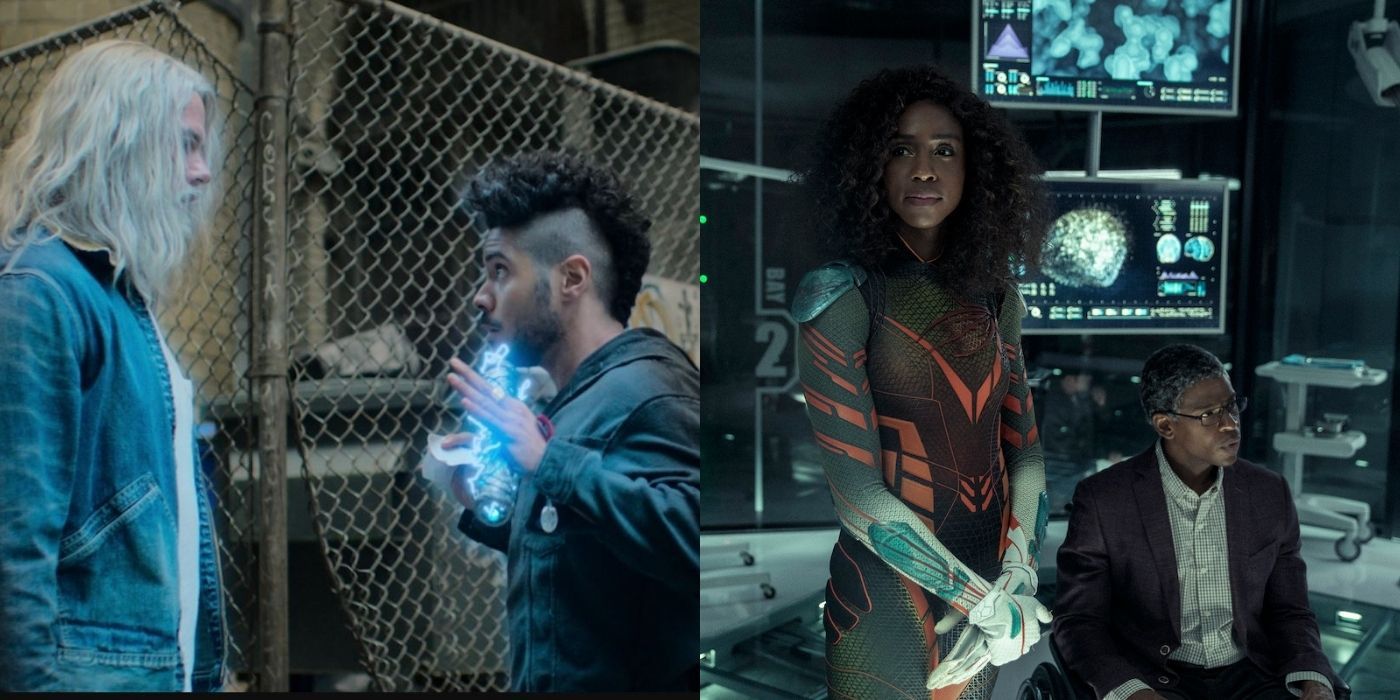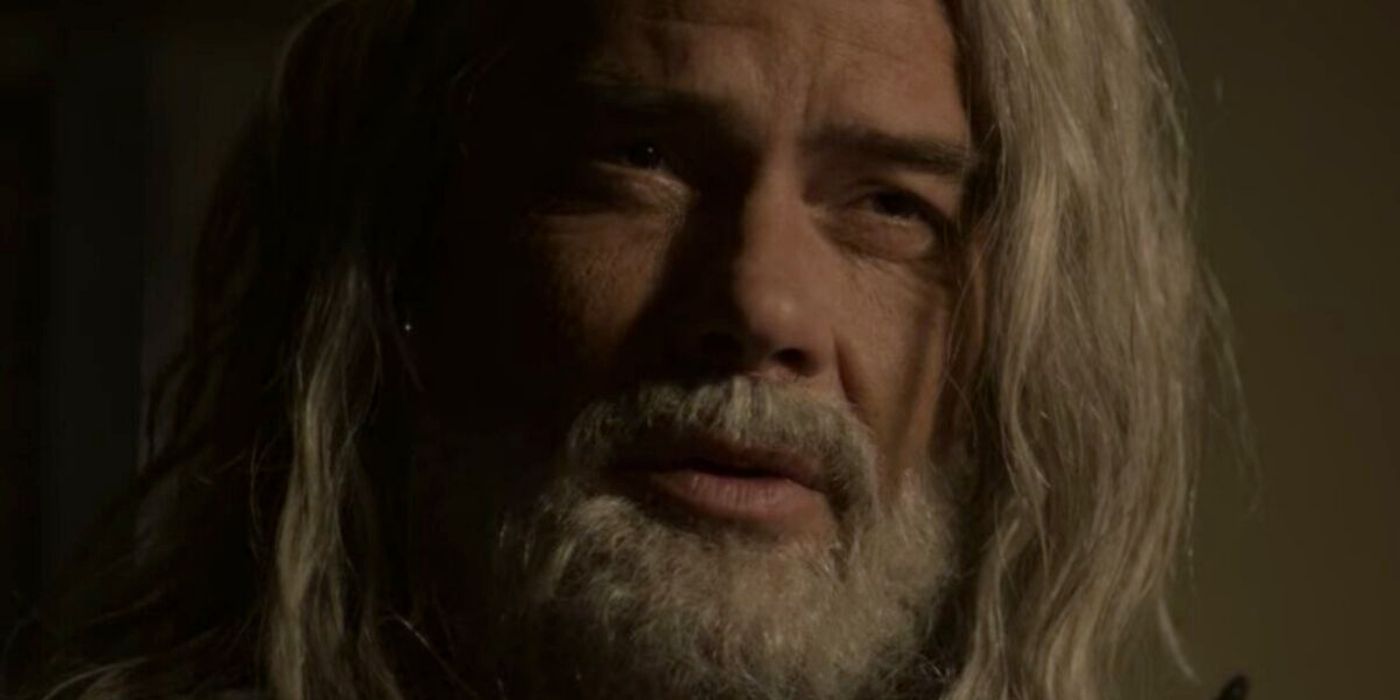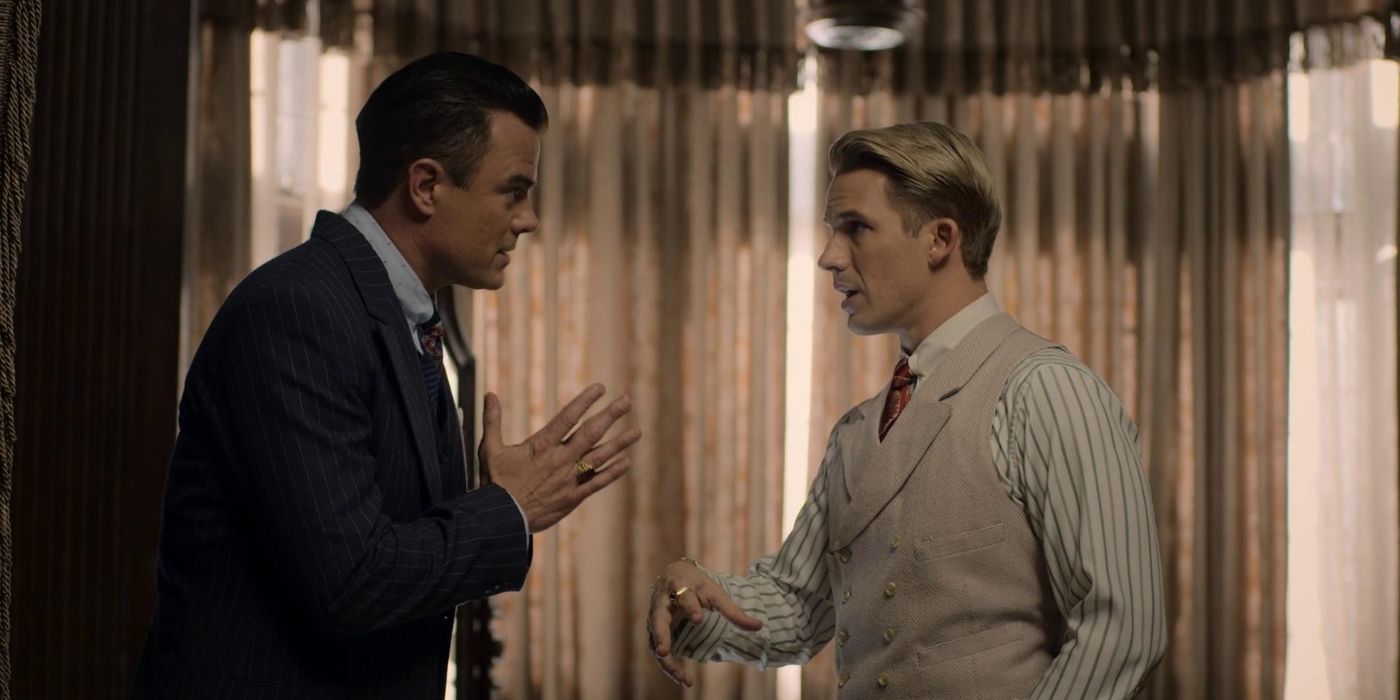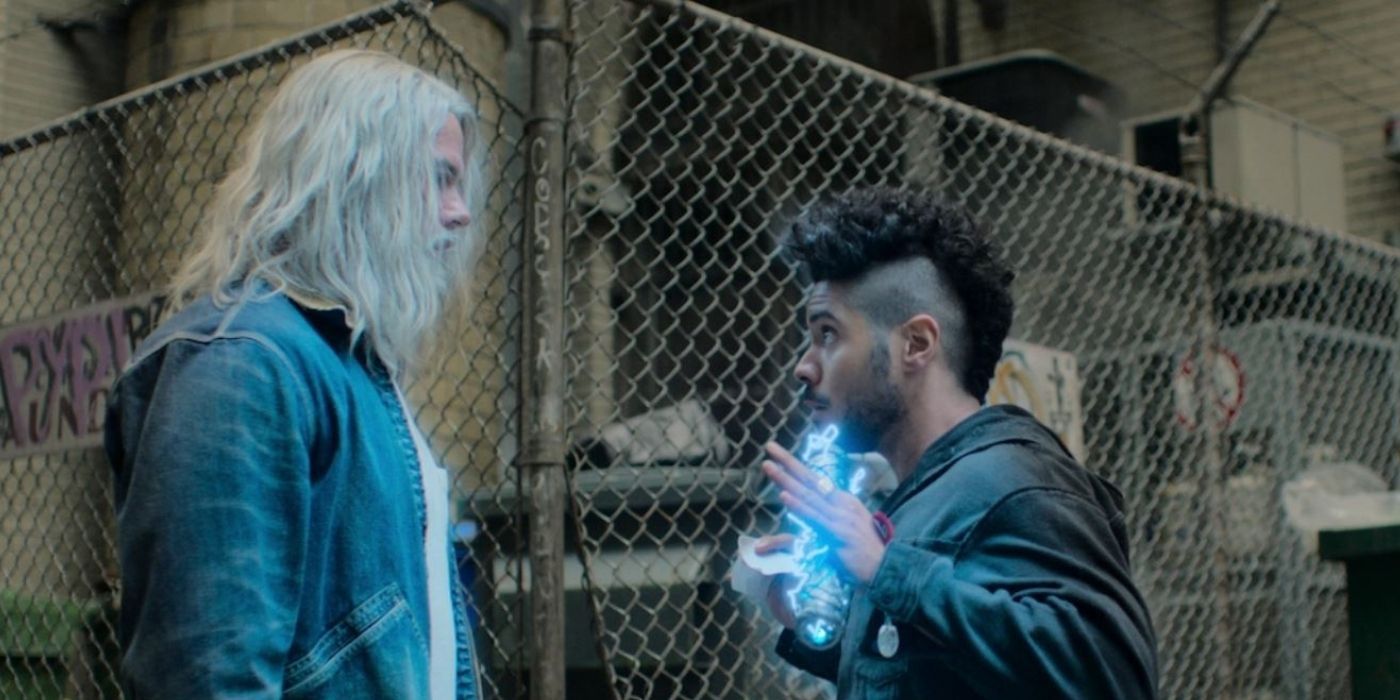
In a series that essentially tries to explore what the real world would be like with the equivalent of the Justice League around it only makes sense that there would eventually be an episode that takes a closer look at the group's Superman equivalent. The Utopian is a man that is strongly motivated by the sins of his ancestors as well as a sense of duty and responsibility to use his god-like powers to protect the planet. While the previous episodes in the series have explored the ways in which the people in his family are affected by his status as well as his unflinching dedication to the hero's code, episode 5 allows the audience a peek into a more vulnerable side of the character.
Looking back to the earlier timeline as well in the series it can be seen how the process of finding these principles and becoming the hero that he is today has cost the Utopian many aspects of his old life as Sheldon. There's an interesting shift in the character from his earlier days as a somewhat carefree businessman into the strict, unyielding protector of the planet that he becomes. The Utopian is interesting because he is recognized as the world's most powerful hero. He has a level of respect and control that comes with this status.
RELATED: Mark Millar Compares Jupiter's Legacy To 2001, Avengers, Godfather II
The question that will continue to grow as the series progresses is what happens when he no longer is the strongest? He's already indicated that his son will be more powerful than him one day, and he came awfully close to dying at the hands of Blackstar back in episode one. It's not unthinkable that his days as the most powerful being on the planet are numbered. It's unclear how his mind will take losing the control he's had for so long. This episode explores Sheldon's viewpoints from an unexpected way with some fascinating results.

The episode opens with Sheldon in a therapy session. Go figure, even Superman needs a therapist nowadays. He's discussing how the relationships in his life are strained. His son has just murdered a villain and defied his most sacred code. His daughter wants nothing to do with him, lives a life he does not approve of, and clearly has some issues with substance abuse. His marriage is strained due to the ways in which he and his wife do not see eye to eye on how to impart the importance of the code to the younger generation of heroes.
Sheldon feels that Brandon needs to witness the autopsy of Blackstar. However, Grace feels that Sheldon needs to keep in mind that their son is human and not to keep punishing him for breaking the code. Grace is aware that the code does not answer the questions of the younger generation in a world that is changing and becoming more dangerous. Sheldon is stubbornly holding onto the code and refusing to change in a situation that clearly calls for an altered approach. There's an issue with growth here for the character. He is the classic superhero, and as such has always operated by his classic set of superhero rules. Sheldon's struggle is that if he yields and allows for the idea of what a hero is to change, then he no longer fits the archetype and has to admit the error of his ways.
In many ways, the Utopian's struggle is the same as modern-day America. He's struggling to maintain the glory of his heyday while also having to acknowledge that some of the actions he's taken do not keep their shine when held up to the context of the modern day. There's nothing wrong with learning from mistakes and growing, but Sheldon's beliefs and lifestyle are so entrenched in his code that his inability to grow is causing rifts within his family. It's later revealed that the therapist that Sheldon is speaking with is a former villain he locked up. It's highly interesting that of all people, this is the one with whom Sheldon feels most comfortable sharing his personal issues.

Later on, we see Brandon attending the autopsy of Blackstar. After they are able to remove Blackstar's armor, they find a device located within his corpse. Once opened, it is revealed that the device holds an identical copy of Sheldon's father's old pocket watch seen in the earlier timeline as well. It's thought that George, or Sky Fox, has planted the device and the watch there. However, nobody knows of his whereabouts. Sheldon decides to track down Hutch, George's son, to see if he can help him to track down his father.
Sheldon finds Hutch, who keeps trying to teleport away from him. Sheldon keeps catching up and finding him again though. Hutch insists that he does not know where his father is and that he hasn't seen him since he was 12. To humor him, Hutch directs his baton to teleport to his father's location, which results in the two being transported to a random strip club. The mystery surrounding George's character is one of the most interesting in the series. His son Hutch is clearly linked to the mystery in some way and it makes his scenes very interesting to watch.

In the past timeline, Sheldon's pursuit of his vision is also fracturing his personal relationships. He misses an important board meeting with his brother and they lose their company. His fiancé leaves him when she learns that she was not a part of the group he saw in the farmer's basement in the previous episode. Sheldon is determined to gather the people from his vision and explore to the island he keeps seeing in his vision. Sheldon and George go and find Grace as she's quitting her job at the newspaper and day they want to hire her to chronicle their journey. Sheldon also asks Walter to accompany them on the expedition. Sheldon feels that there is something out there that is calling to them or trying to test the group that he saw in his vision.
It's becoming increasingly clear that Jupiter's Legacy is not your run-of-the-mill superhero series. While those expecting to see superheroes fighting constantly may be a bit disappointed at the slower pacing of the show, there's a lot to dig into here. The quality of the interactions between characters and the authentic portrayal of their human struggles make this series stand on its own. This is what sets Jupiter's Legacy apart, and its more philosophical trappings are welcome within the genre.
MORE: 'Captain America: Civil War' Works Because Steve And Tony Are Both Right (And Wrong)

